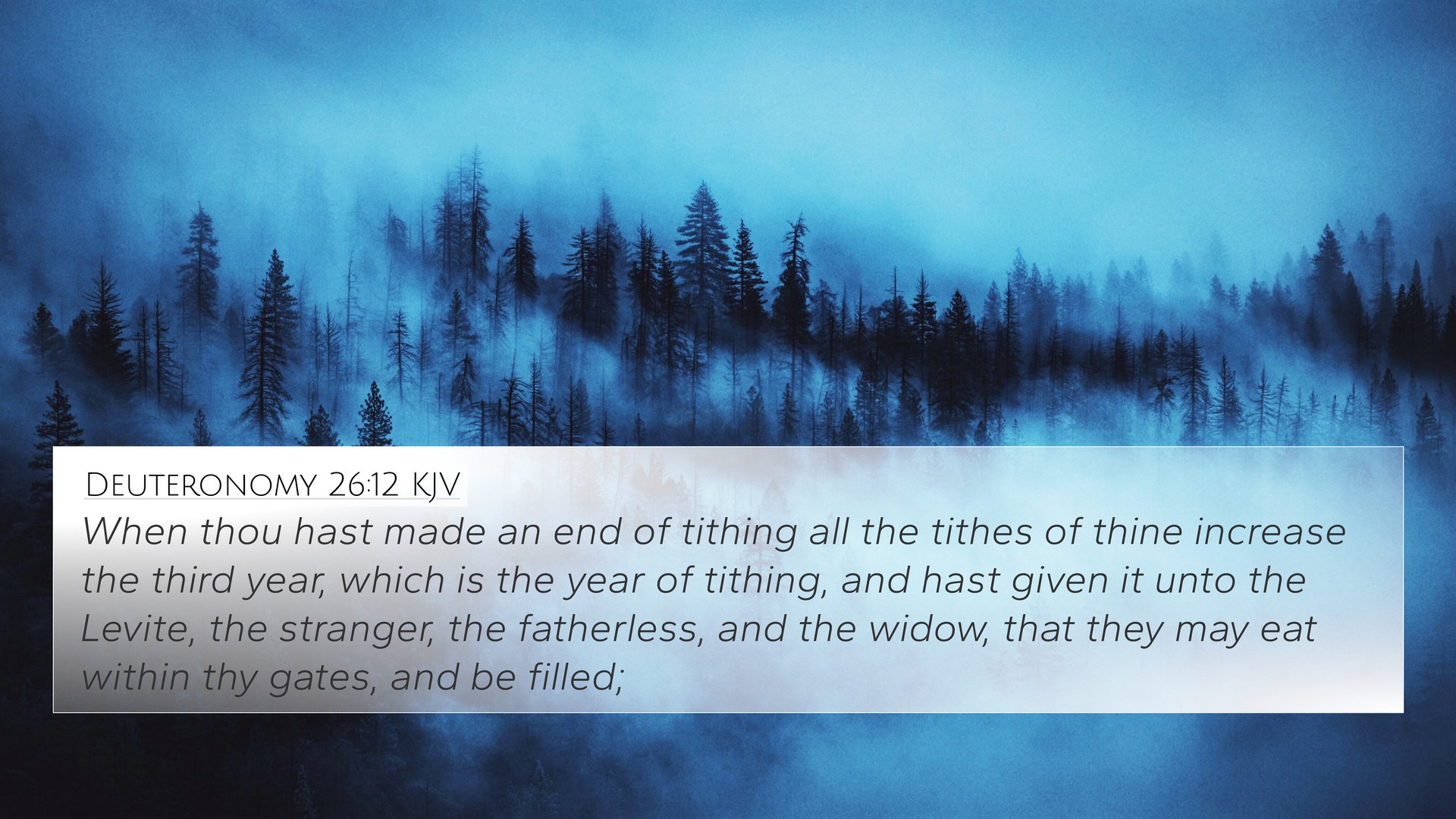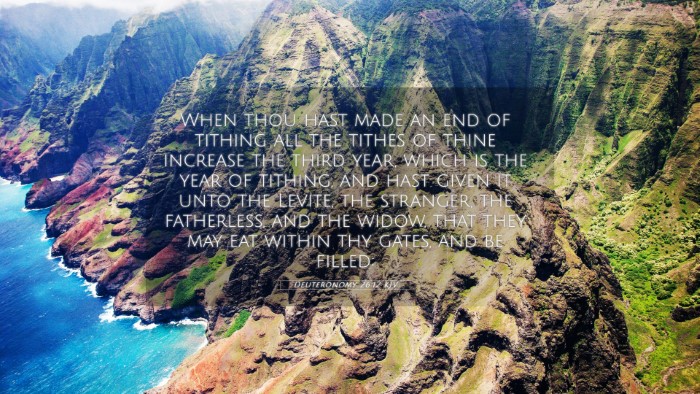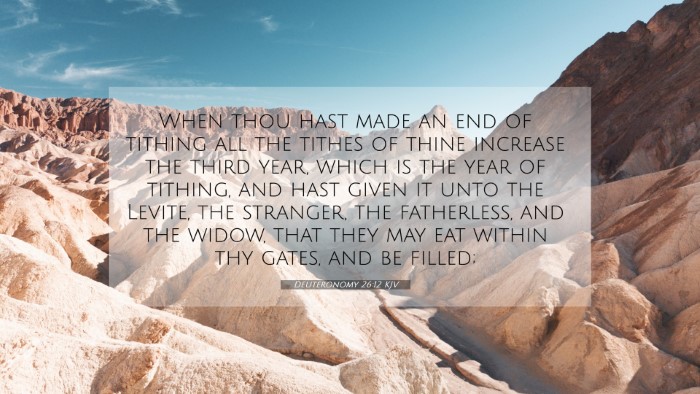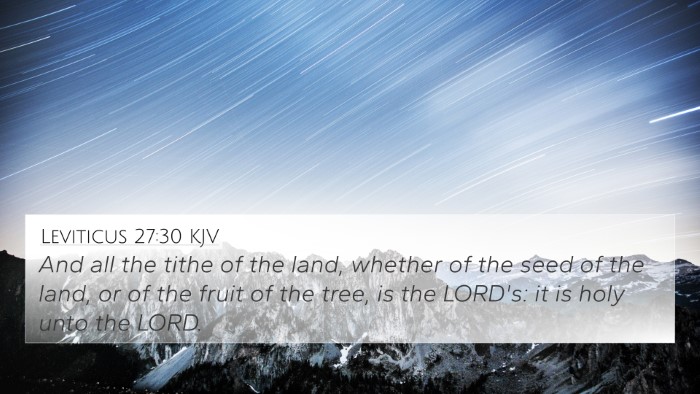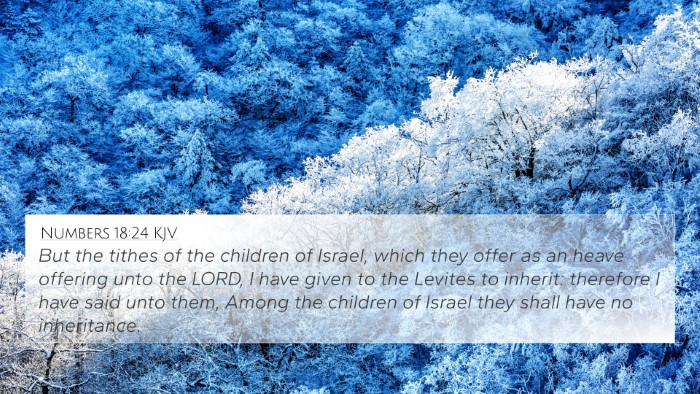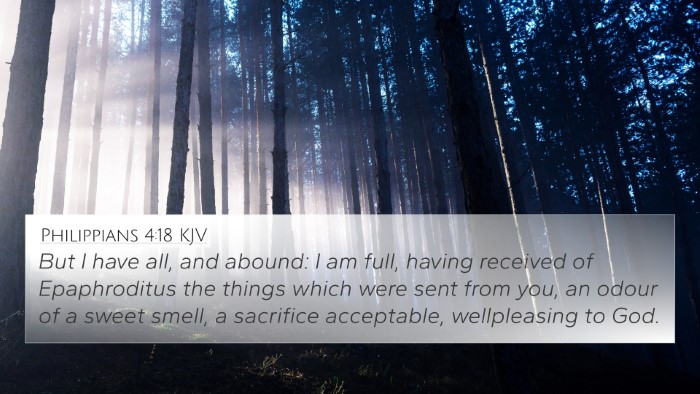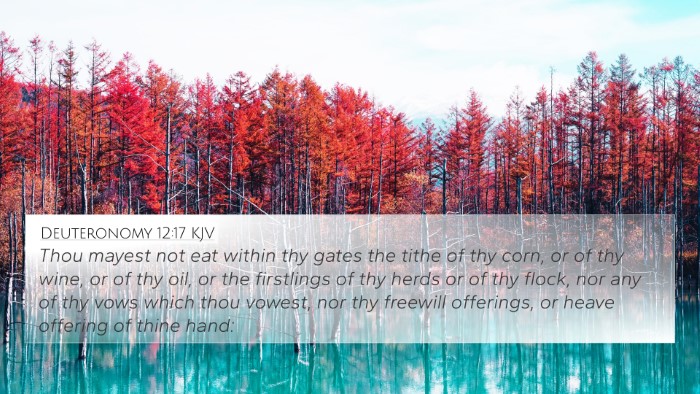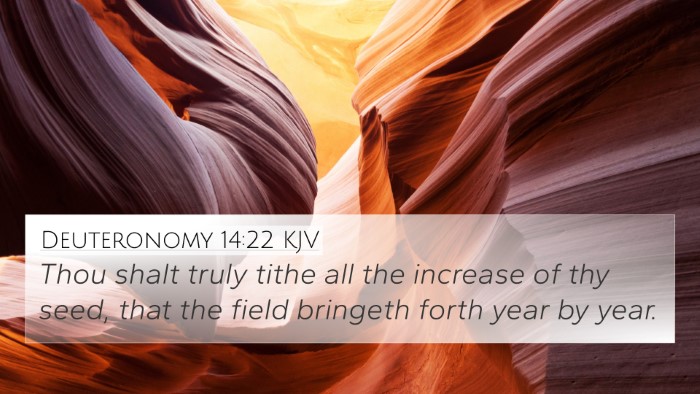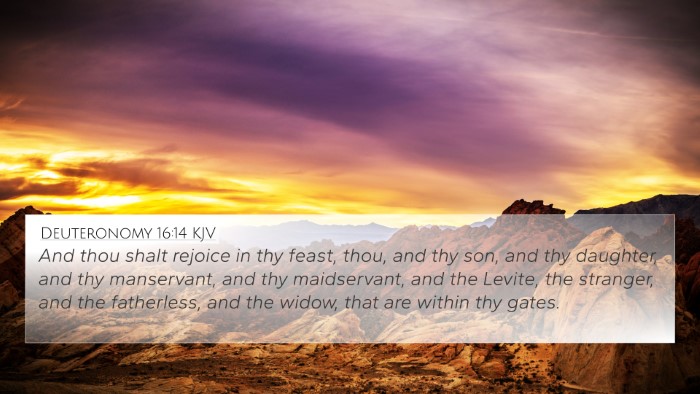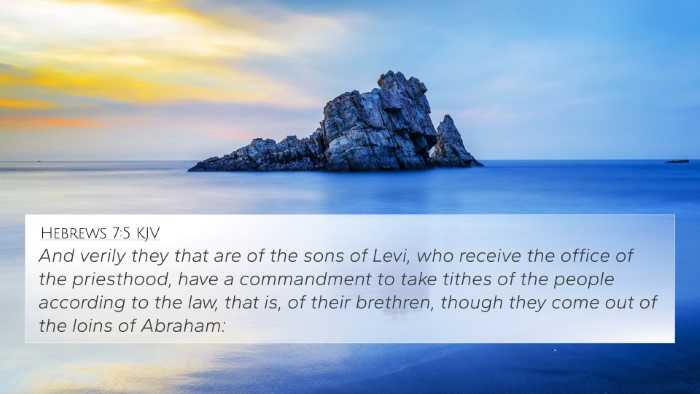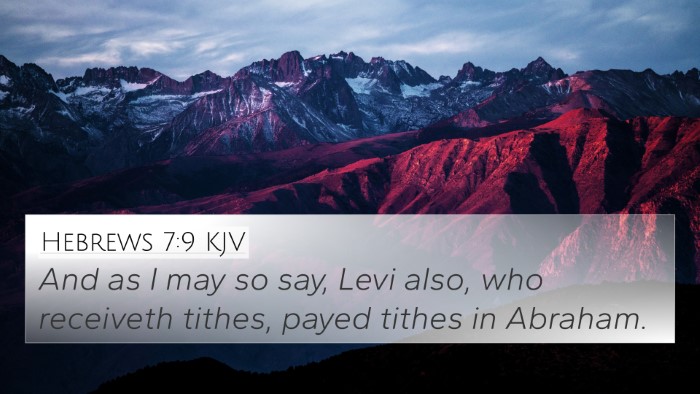Understanding Deuteronomy 26:12
Verse Reference: Deuteronomy 26:12 states, "When you have finished paying all the tithe of your increase in the third year, the year of tithing, then you shall give it to the Levite, to the stranger, to the fatherless, and to the widow, that they may eat within your gates and be filled."
Meaning and Interpretation
This verse revolves around the practice of tithing, highlighting its social and spiritual significance within the Israelite community.
Key Insights
- Obligation of Tithing: This verse underscores the obligation of Israelites to contribute a tenth of their harvest, specifically during the third year which is termed the year of tithing.
- Purpose of Tithing: The collected tithes are directed towards supporting the Levites, as well as marginalized groups such as strangers, orphans, and widows. This reflects the community's duty to care for those in need.
- Community Aspect: The act of giving is not just a religious requirement but also promotes a sense of community and social responsibility.
- Spiritual Benefits: Tithing is portrayed as a means of worship and obedience to God, fostering blessings and fulfillment both materially and spiritually.
Commentary Highlights
Various public domain commentaries emphasize different facets of this verse:
- Matthew Henry: Henry emphasizes the importance of giving and the blessings associated with fulfilling one’s obligations to God and society. He mentions that tithing serves not only as a means of sustenance for the Levites but also helps in maintaining social equity.
- Albert Barnes: Barnes points out the significant role of the Levites, highlighting them as the spiritual leaders who are vital for maintaining religious practices among the Israelites. According to Barnes, and the directives concerning the tithing process outlined here are intended to ensure that every member of the community, especially the vulnerable, is provided for.
- Adam Clarke: Clarke offers a detailed examination of the social implications of this practice. He notes that by instructing the Israelites to support the poor, the verse promotes compassion and unity within the community.
Cross-References and Thematic Connections
Many cross-references can be drawn from Deuteronomy 26:12 that illuminate its themes of social justice, community responsibility, and spiritual obligation. Below are some key Bible verses that relate to this verse:
- Leviticus 27:30: Discusses the commandment of tithing and its spiritual significance.
- Malachi 3:10: Urges the people to bring the whole tithe into the storehouse, emphasizing God’s promise of blessings in return.
- Luke 18:12: A verse where a Pharisee mentions his practices of fasting and tithing, showcasing the attitude towards tithing during the New Testament.
- 2 Corinthians 9:7: Encourages generosity and cheerful giving, connecting New Testament teachings to the principle of tithing.
- Proverbs 3:9-10: Advises honoring the Lord with one's wealth, illustrating the reward of abundance that comes from giving.
- Matthew 25:35-40: Jesus illustrates the importance of helping those in need, which parallels the directive to care for vulnerable groups.
- Acts 4:34-35: Demonstrates early Christian community care similar to Old Testament practices in distributing goods to those in need.
- James 1:27: Highlights the importance of caring for orphans and widows, reinforcing the themes from Deuteronomy about social responsibilities.
Conclusion
Deuteronomy 26:12 serves as a potent reminder of the intertwined relationship between faith, community, and charity. The call to tithe is as much about fulfilling a religious duty as about ensuring the welfare of those who are less fortunate. This verse encourages a holistic approach to spirituality that includes compassion, responsibility, and communal support, resonating even with contemporary applications of faith-based social justice.
Further Explorations
For those interested in exploring Bible verse cross-references and thematic connections further, there are numerous resources available:
- Tools for Bible cross-referencing: Engage with resources that highlight connections between scriptures.
- Bible concordance: A helpful tool for locating verses with specific themes or words.
- Bible cross-reference guide: Useful for studying inter-Biblical dialogue and connections.
- Cross-reference Bible study: Methods to deepen understanding of how scriptures support and reflect upon each other.
- Bible reference resources: Collections that aid in finding scriptural cross-references for sermon preparation and personal study.
